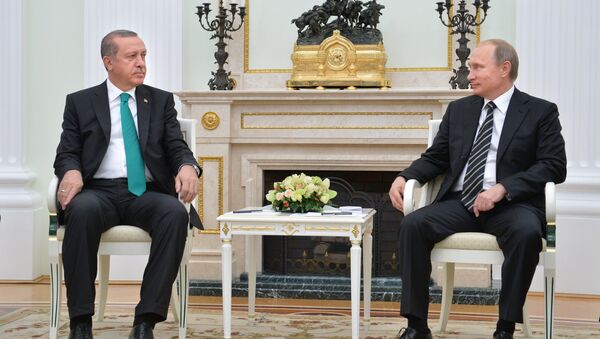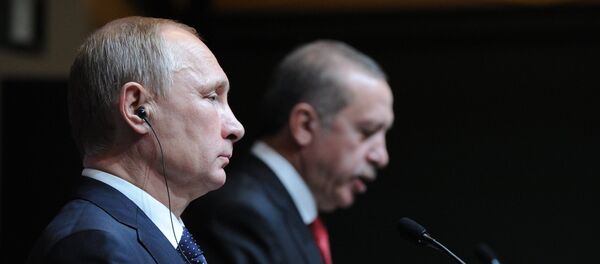According to Sezer, after the UN Commission completes its investigation, the situation may become even more complicated for Turkey. In February 2016, Russia submitted a draft resolution demanding an end to the undermining of the sovereignty and territorial integrity of Syria amid Ankara's activities on the Syrian-Turkish border and its attempts to deploy troops in northern Syria.
"The crisis in Turkish-Russian relations has much more extensive and serious contours than just tensions that followed the incident with the aircraft. This situation requires more active steps from the Turkish side aimed at the normalization of bilateral relations," the expert said.
"Erdogan's letter can be viewed as an attempt by the Turkish leadership to ‘test the waters' and see how feasible it is in the current circumstances to achieve the normalization of relations with Russia," Sezer said.
"Turkey is making such steps because its policy in Syria and in general in the Middle East has reached a deadlock […] However, this is not only a matter of foreign policy. In Turkey, there is now a serious crisis in the economy, which in the Turkish society is directly associated with the break up between Turkey and Russia," the expert claimed.
Taking into account all negative factors, the re-establishment of relations with Russia is essential for Turkey, according to Sezer.
"Given the tensions with the EU and the global economic crisis as well as the fact that Turkey's policy in the Middle East led to a sharp drop in the country's image in the international arena, neglecting a friendly relationship with Russia is nothing else but shooting itself in its foot," Sezer argued.
Meanwhile, Russian President Vladimir Putin has indicated that Russia was willing to resume its relations with Turkey, but Ankara will have to go through all the necessary steps, including an apology and compensation for the incident. Turkish-Russian relations deteriorated after a Turkish F-16 fighter downed a Russian Su-24 bomber over Syria on November 24, 2015.


